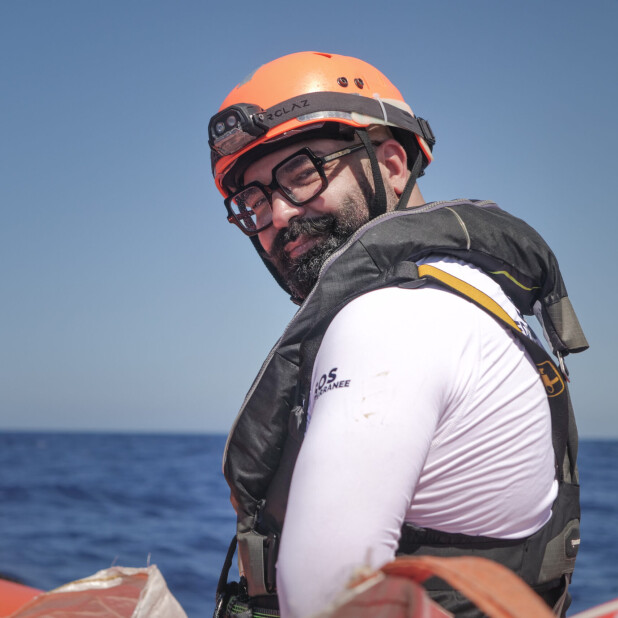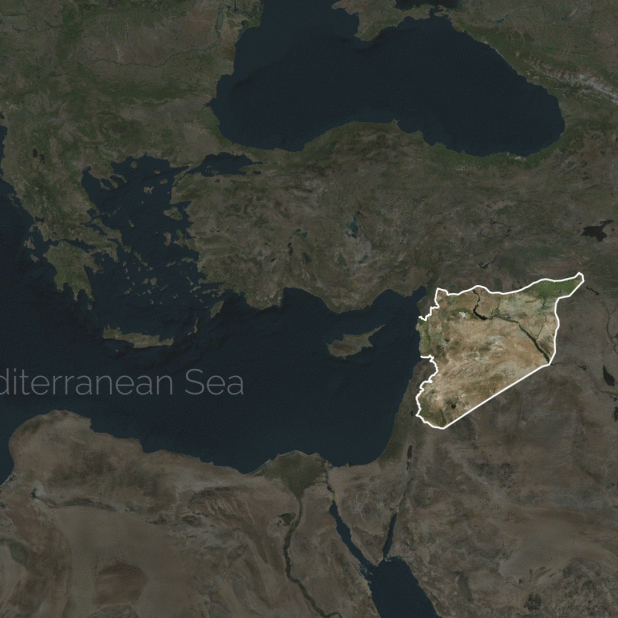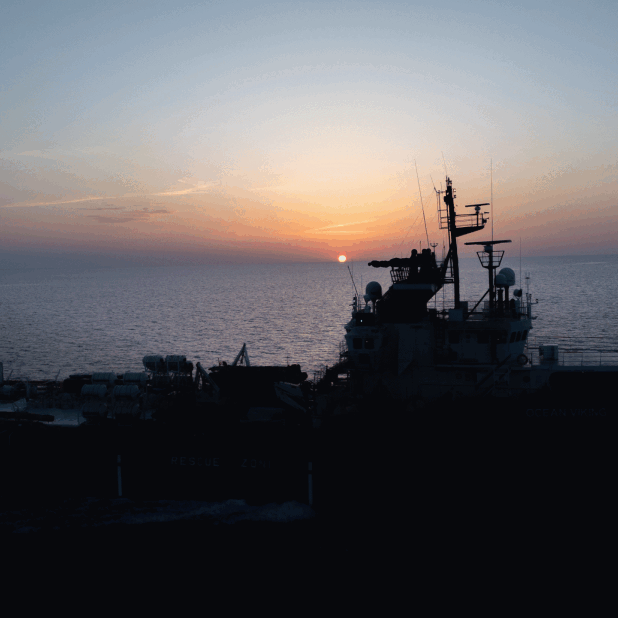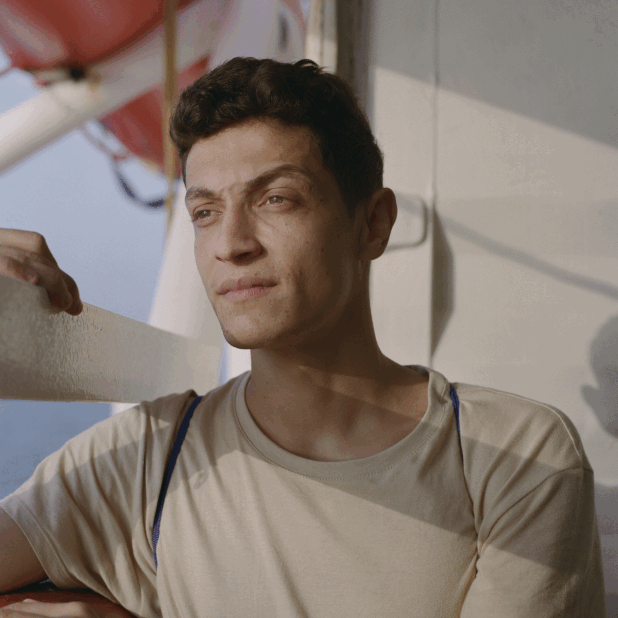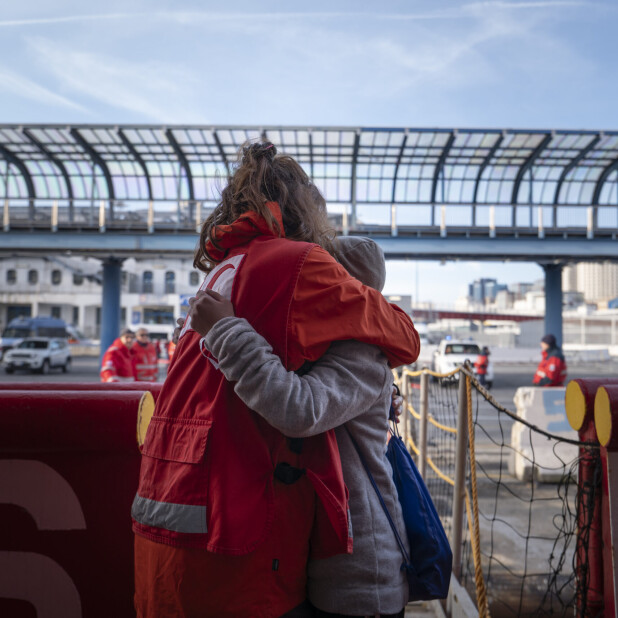
For people lost in the middle of the sea, after fleeing violence and abuse, these three words mean all the world.
“The only sentence they want to hear is: ‘You are safe,’ says Abdelfetah Mohamed, who works as post-rescue facilitator aboard the Ocean Viking, a ship with the sole mission of rescuing small boats in distress in the Mediterranean Sea. To the rescued people, the words ‘You are safe’ means many things: first, they will not be sent back to Libya, where people in exile often languish in prison under deplorable conditions. But it also means they will not be lost at sea, a fate that befalls many each year.
The central Mediterranean is the world’s deadliest migratory sea route since 2014, according to the International Organization for Migration, and recent years have seen a sharp increase in the number of migrants attempting the crossing. The Ocean Viking’s mission is to search and rescue potential boats in distress left to their fate in this stretch of the sea.
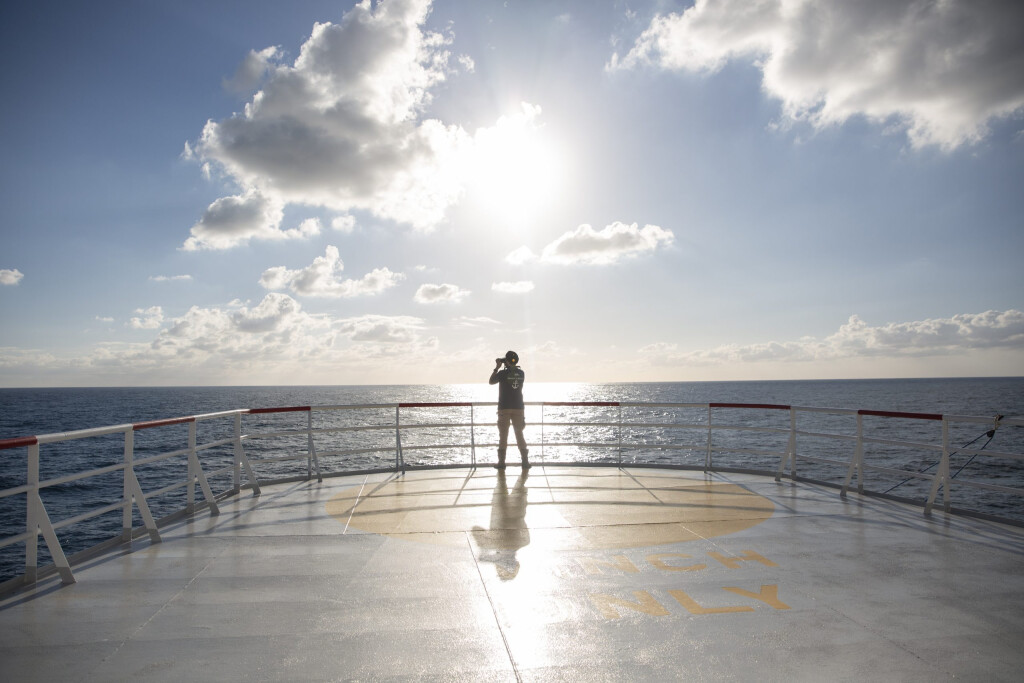
A member of the Ocean Viking crew scans the horizon looking for a boat reported in distress in International waters between Libya and Italy. Operated by SOS MEDITERRANEE, with the IFRC providing humanitarian services on board, the Ocean Viking is one of only a few search and rescue ships operated by non-governmental organizations in the Central Mediterranean in 2022.
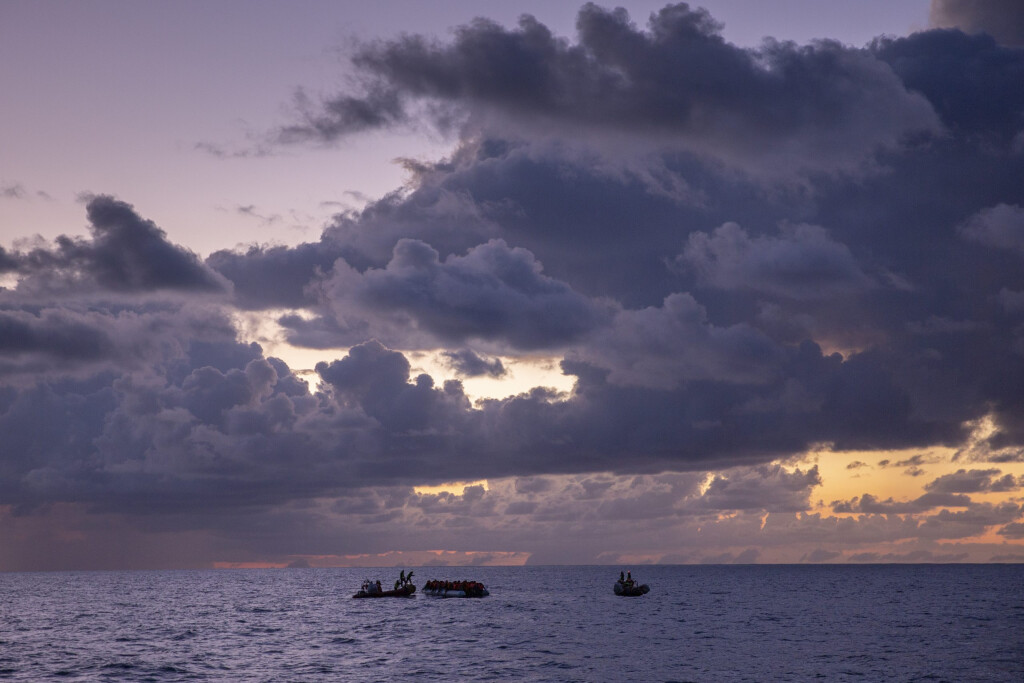
In the early morning of a recent patrol, the Ocean Viking crew spots a rubber boat crammed with people, who they later learn had recently left from Libya. The Ocean Viking’s crew immediately dispatches rescue boats.
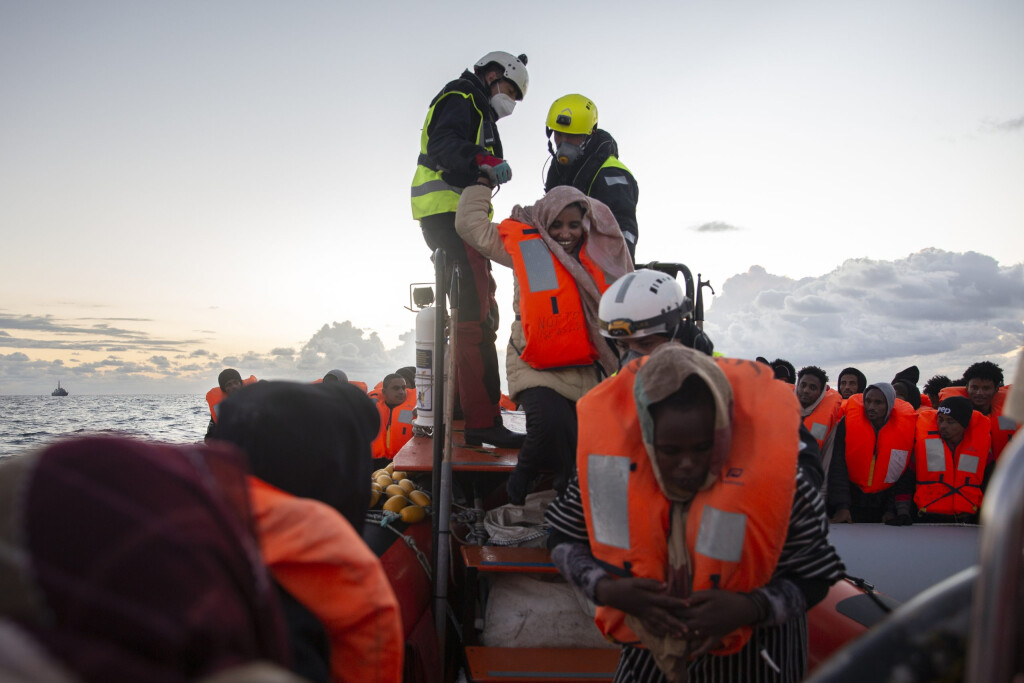
The Ocean Viking rescue boats reach the rubber dinghy in distress and begin evacuating the relieved survivors aboard. From there, survivors are taken aboard the Ocean Viking, where SOS MEDITERRANEE and the IFRC provide first aid, healthcare services, maternal healthcare, food, psychosocial support, and information about maritime and human rights and the processes they are likely to face when they disembark at a European port.
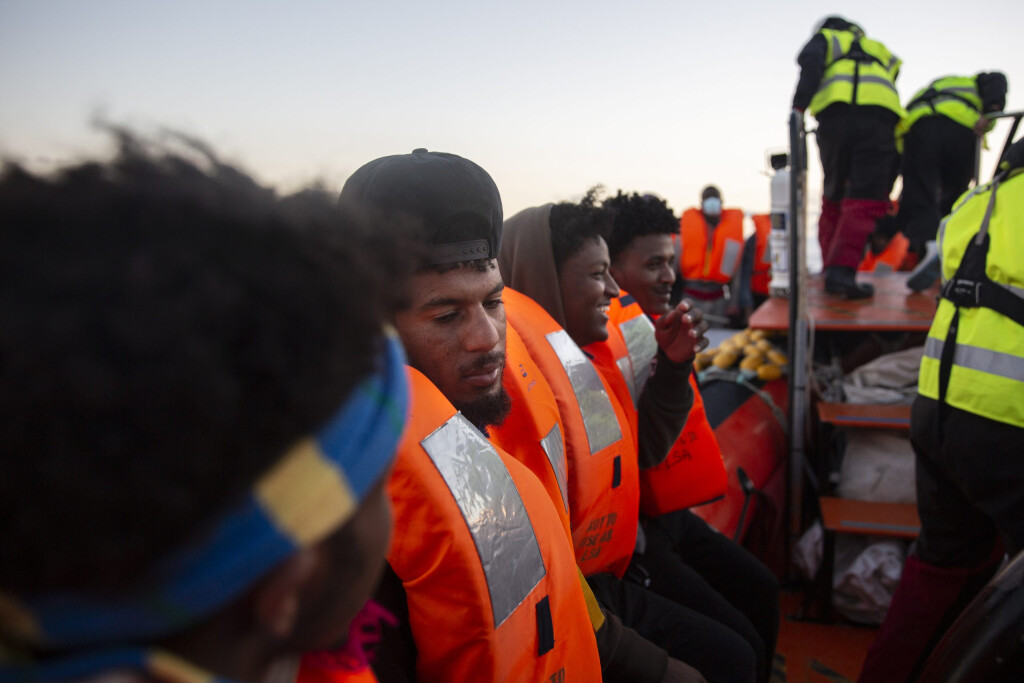
“When we saw the ship was coming, we felt just like we’re born again,” says Hayelom, one of the persons rescued that day. “We were sure that we were going to die. I knew it would be a difficult journey. But we accepted death as one of our choices rather than being imprisoned in Libya.”
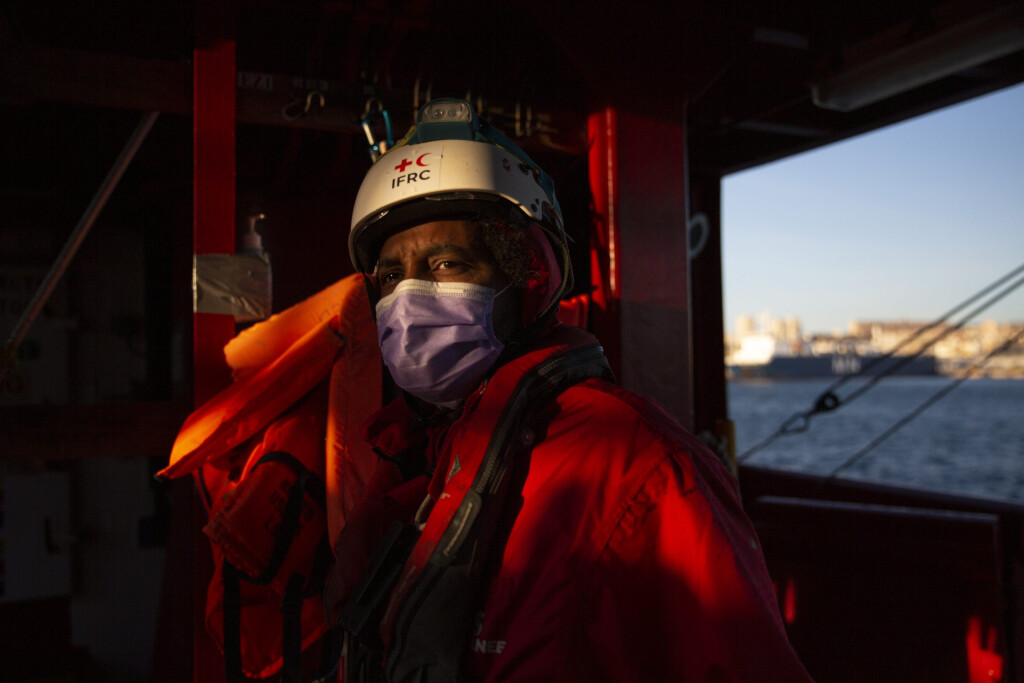
“The only thing they want to hear is, ‘You are safe,” says Abdelfetah Mohamed, a volunteer with the Italian Red Cross who now works for the IFRC as a post-rescue facilitator. Abdelfetah migrated himself from Eritrea and his command of several languages spoken in Africa and his own experience, escaping war and ultimately crossing the Mediterranean, enable him to connect with the people rescued and help them through the difficult steps ahead. “In 2011, I came on a small boat from Libya. And before that, I crossed the Sahara. So, this makes me closer to these people through this experience. This for them is an important moment. So, I choose my words very well and I tell them this with respect and dignity. They feel it and they believe me.”
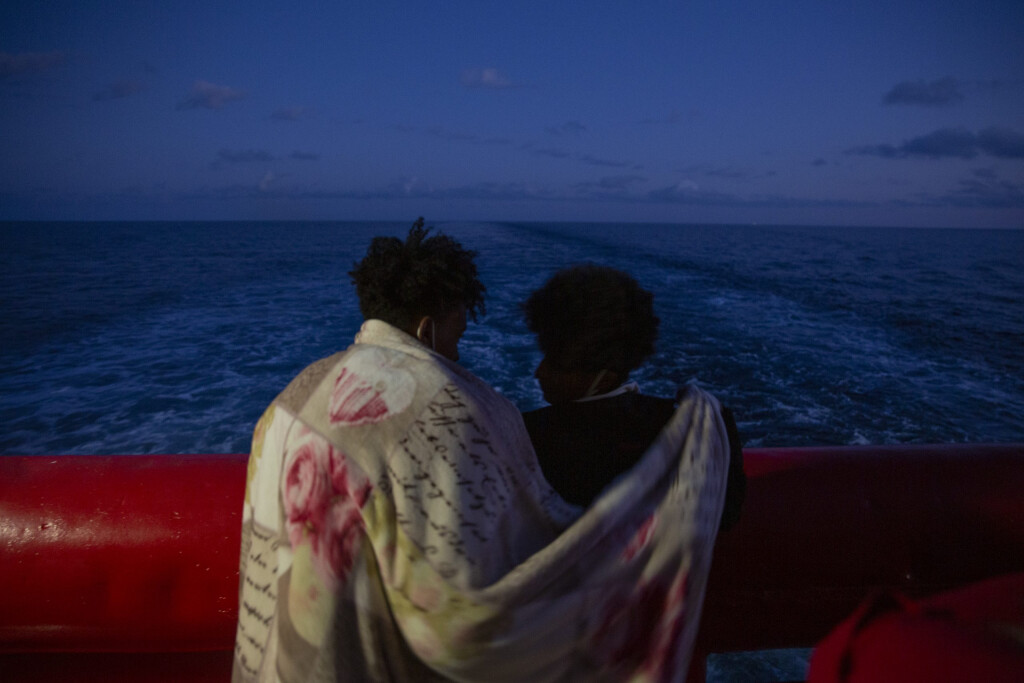
People rescued by the Ocean Viking often spend several days on board the ship while the Ocean Viking awaits authorization to disembark in a safe port. It’s a time of celebration, anticipation and anxiety about their immediate future. It’s also a time of tenderness, solidarity and reflection as they think about what lies ahead, what they’ve been through, and about the fate of relatives they left behind.
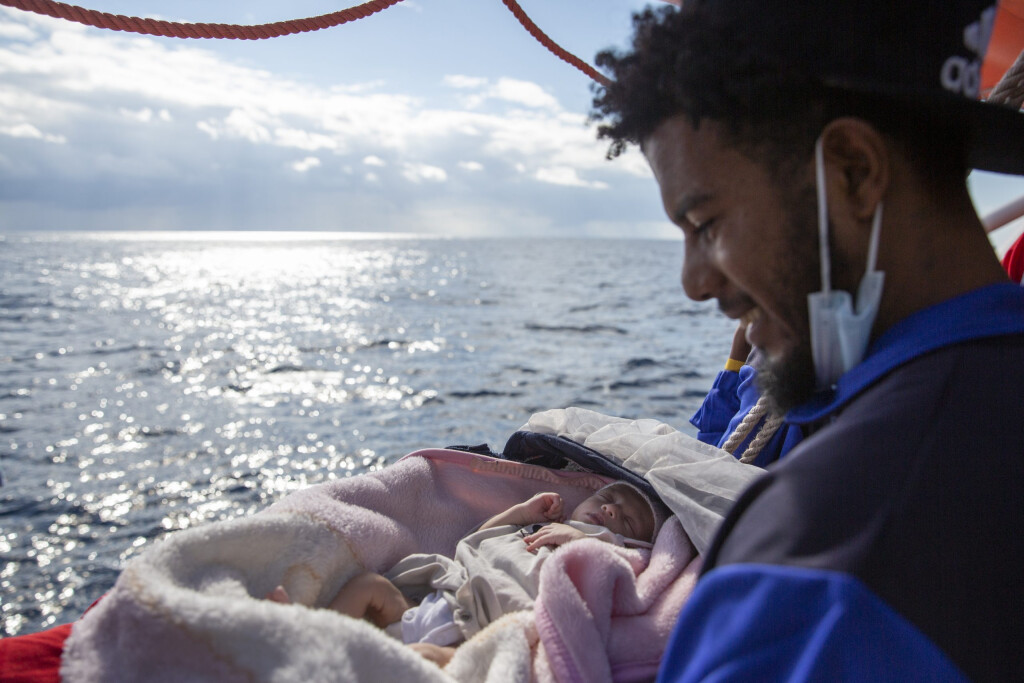
On this journey, there is also new life to celebrate. The child was born when a group of people on the move were being held in captivity in Libya just before the crossing. While the majority of people risking dying in the Central Mediterranean route are men, many women also attempt the crossing, sometimes with infants or small children.
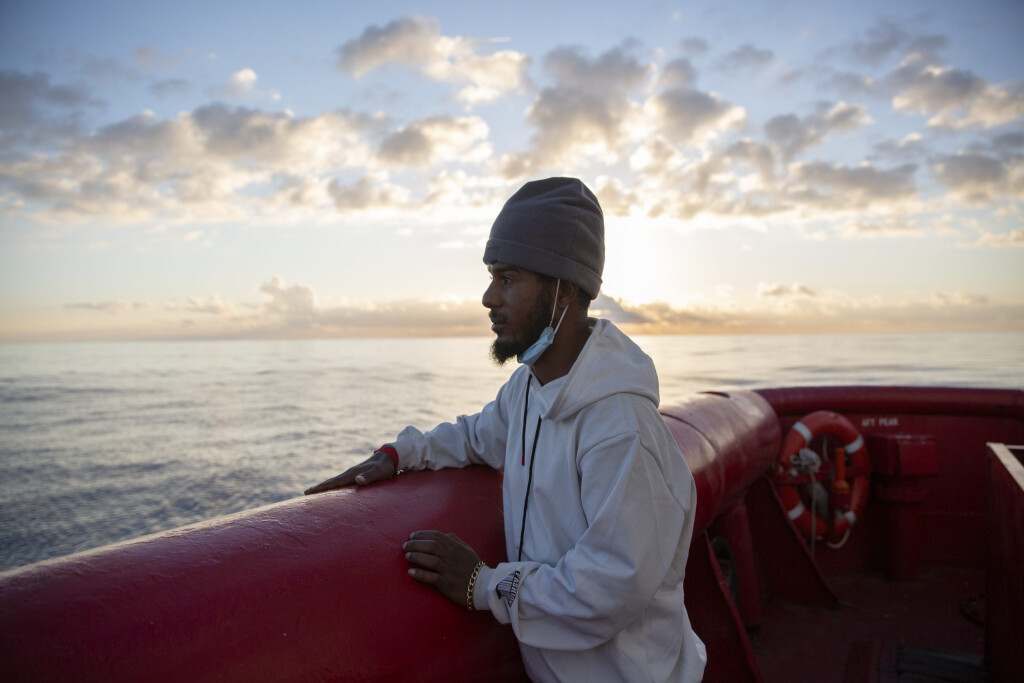
“I didn’t even think I would be a migrant,” says Hayelom. “It was sudden. The war began suddenly last year, due to the political crisis in Ethiopia. Because of the air strikes and tanks, we ran to save our lives. There was a refugee camp in Sudan, so we fled to Sudan to save our lives. When we left the camp in Sudan to get jobs, we got kidnapped and brought to Libya. It was nine months ago that I first came to Libya. For now, I don’t want to go back home. Because if I go to my country, they will take me to war. My first dream in my life was to live with peace of mind, to learn and accomplish my education. In the future, I want to accomplish some of the dreams I had. I wish my family could know I am ok and be happy.”
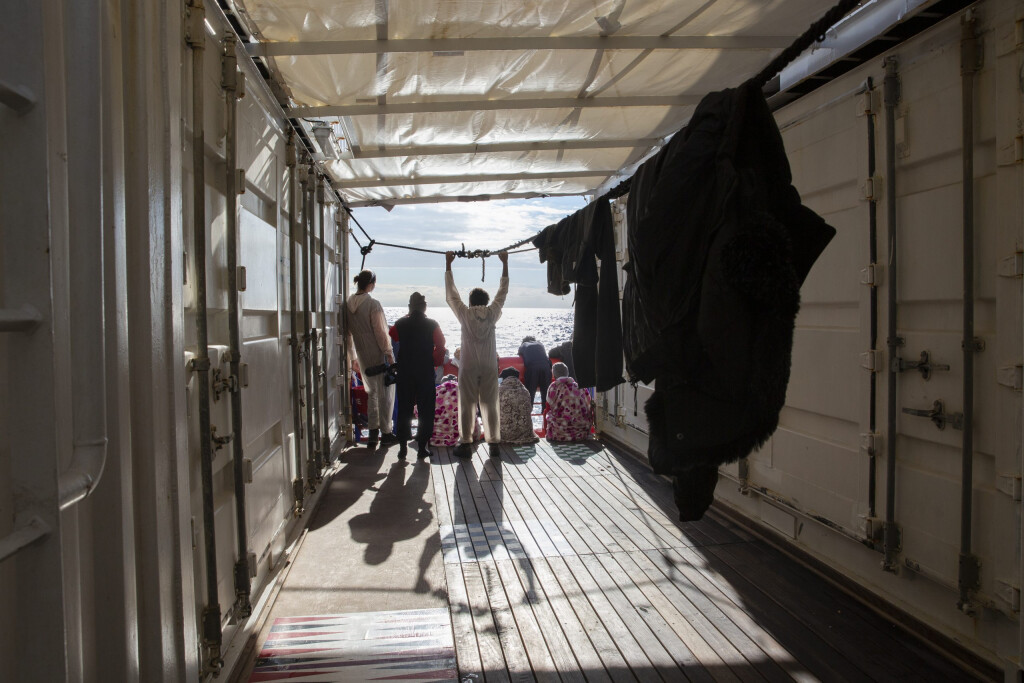
Abdelfetah (dressed in white at center) spends a lot of time with the survivors. Explaining to them the next challenges they will face. “From the moment I tell them, ‘you are safe’, they start to think, ‘Okay, so what we are going to do?’. And then I begin to prepare them. I don’t feel it my responsibility only to give them food and to talk and then to say goodnight. I really want to prepare them because a lot of them arrive with big dreams, and then, with time, they’re shocked. So, I try to tell them the reality. You’ll pass from hand to hand, from centre to centre. So you have to prepare yourself for this.”
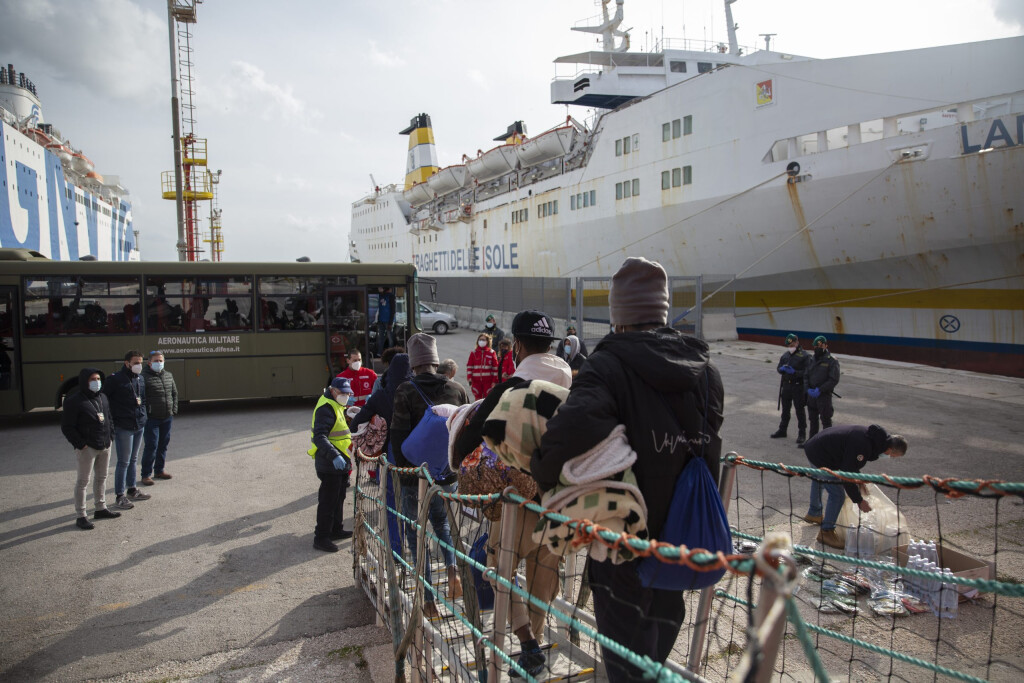
Also, many people on the move don’t realise that they will have to stay in the first European country they land in, in this case Italy. “I talk about ‘what is the reality’? How do the migrants and refugees live in Europe,” says Abdelfetah, the IFRC post-rescue facilitator. “When you arrive to a country in Europe, you cannot move more. And I know a lot of people in the street. Every time they go to Germany, they send them back. They go there, they send them back. And they’re in the street now. I look at them and I feel sorry. I feel sorry for what they will face. And this is why I say, ‘I celebrate, and then I face the reality.”
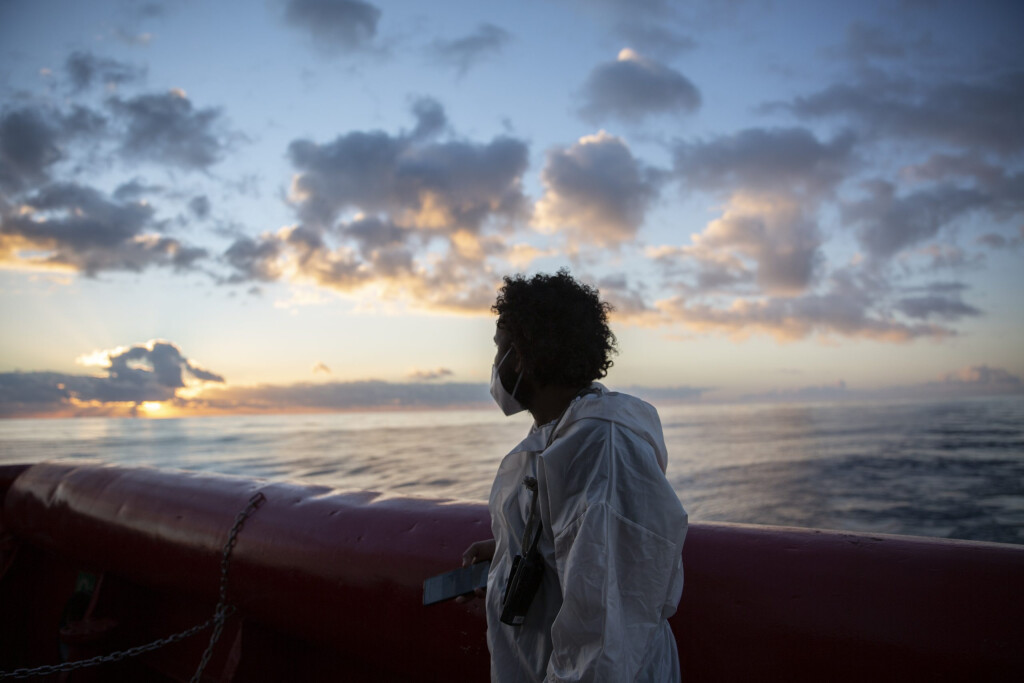
“I’ve seen many, many things that most people cannot imagine,” says Abdelfetah. “I know a lot of people who had a very fantastic life, and they lost everything in one moment. And this makes me appreciate life and what I have.”
Pictures: Alexia Webster / IFRC
Article: IFRC

